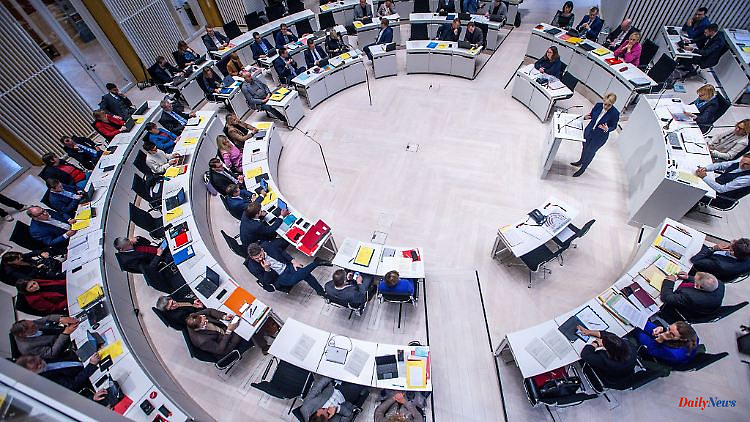Schwerin/Banzkow (dpa/mv) - After the experiences with the corona and energy crisis, Die Linke sees a need for action for the municipalities in Mecklenburg-Western Pomerania. Dirk Bruhn, member of the state parliament, explained on Wednesday at the three-day winter meeting of his parliamentary group in Banzkow (Ludwigslust-Parchim district) that it had become apparent where adjustments needed to be made. At the invitation, Minister of the Interior Christian level from the left-wing coalition partner SPD also took part in the consultation.
"Critical infrastructure must remain in the hands of municipalities and if it has been sold in recent years, we will find regulations on how it can be placed under municipal responsibility again in a crisis-proof manner," announced Bruhn. This included water and power supply.
In addition, the corona pandemic has shown that, in addition to classic debates in community rooms, hybrid meetings and video conferences are definitely future-oriented models. "By the time the municipal constitution is amended in the coming year at the latest, we will enable the municipalities and districts to hold their committee meetings in a hybrid form in a legally secure manner," said Bruhn. The opposition in the state parliament had already called for more speed.
Group leader Jeannine Rösler announced that she wanted to strengthen participation in the municipalities. "We see local politics as a mandate to make offers that improve the living situation in the communities, towns and villages. The residents, initiatives, clubs and associations who know best what works in their region and what doesn't, where the Shoe pinches and what potential there is should have as much scope as possible to participate and have a say in decisions," she said.
She also emphasized the importance of effective climate protection. According to the will of the left, an energy management system supported by the state should be set up in every larger municipality and in every office if possible. In this way, potential savings could be identified and climate protection measures developed. "Communities run on a voluntary basis are particularly dependent on targeted advice and support," said Rösler.












